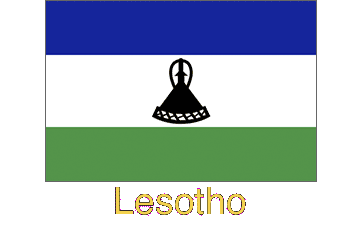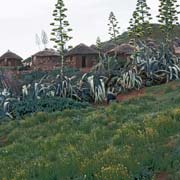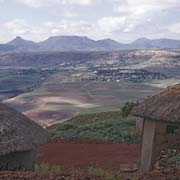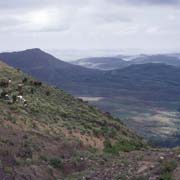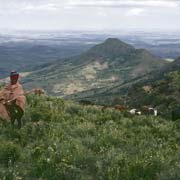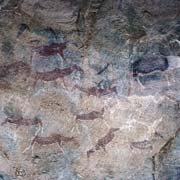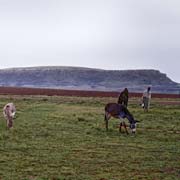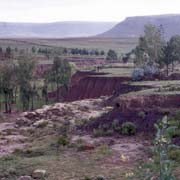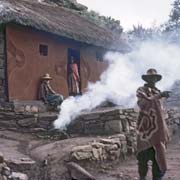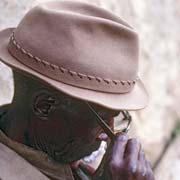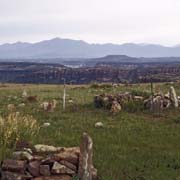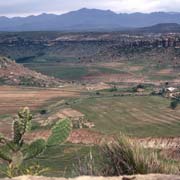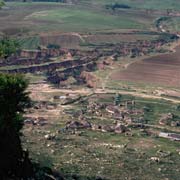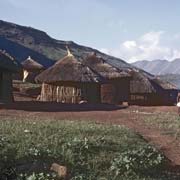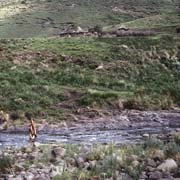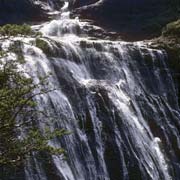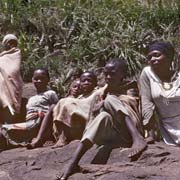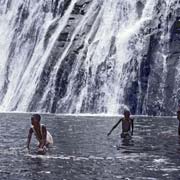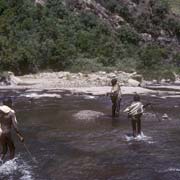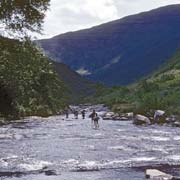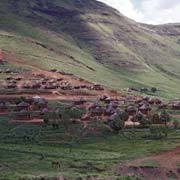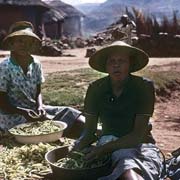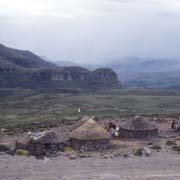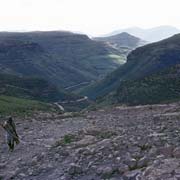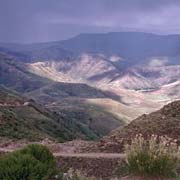Photos of east of Maseru - Thaba Bosiu and the Mountain Road, Lesotho
East of Maseru - Thaba Bosiu and the Mountain Road
Thaba Bosiu, 24 kilometres east of the country’s capital Maseru, is a sandstone plateau with an area of approximately two km² and a height of 1,804 metres above sea level. In the early 19th Century, the Basotho chief Moshoeshoe I established a stronghold on the plateau to act as a refuge for his people during a war with the Ndebele people.
you may then send it as a postcard if you wish.
At an elevation of nearly 120 metres above the surrounding area, the plateau formed a natural fortress to gather the Basotho people in times of danger. The plateau’s large area meant it could hold enough livestock and provisions to support the people during a lengthy siege. Thaba Bosiu or Thaba Bosigo) in the Sesotho language means “Mountain of the Night” and refers to the local belief that the mountain grew during the night and shrunk during the day, leaving enemies who tried scaling it during the night still stranded on the cliffs and vulnerable to attack the following morning.
Thaba Bosiu also acted as Moshoeshoe’s headquarters during the various Basuto Wars. During the first Free State-Basotho War against the Orange Free State in 1858, the Free State’s commandoes tried assaulting the stronghold but met with little success. During the third war against the Free State in 1868, Thaba Bosiu was the only stronghold in Basutoland that wasn’t stormed by the Free State forces: it was never taken by an enemy. When Moshoeshoe died in 1870, he was buried on Thaba Bosiu; now, only ruins and the graves of various Basotho chiefs remain. Thaba Bosiu has become a national monument.
The Mountain Road leads right through the country’s centre to Thaba-Tseka and Mokhotlong. It is a very scenic route with beautiful views, crosses Bushmen’s pass (or Lekhalo la Baroa); nearby are magnificent rock paintings at Ha Baroana, featuring hunting scenes. Near the village of Setibing Ha Sempe is the Qiloane Falls, which can be reached by wading through the Makhaleng river. Further east is the Blue Mountain Pass, with an altitude of 2,580 metres.


